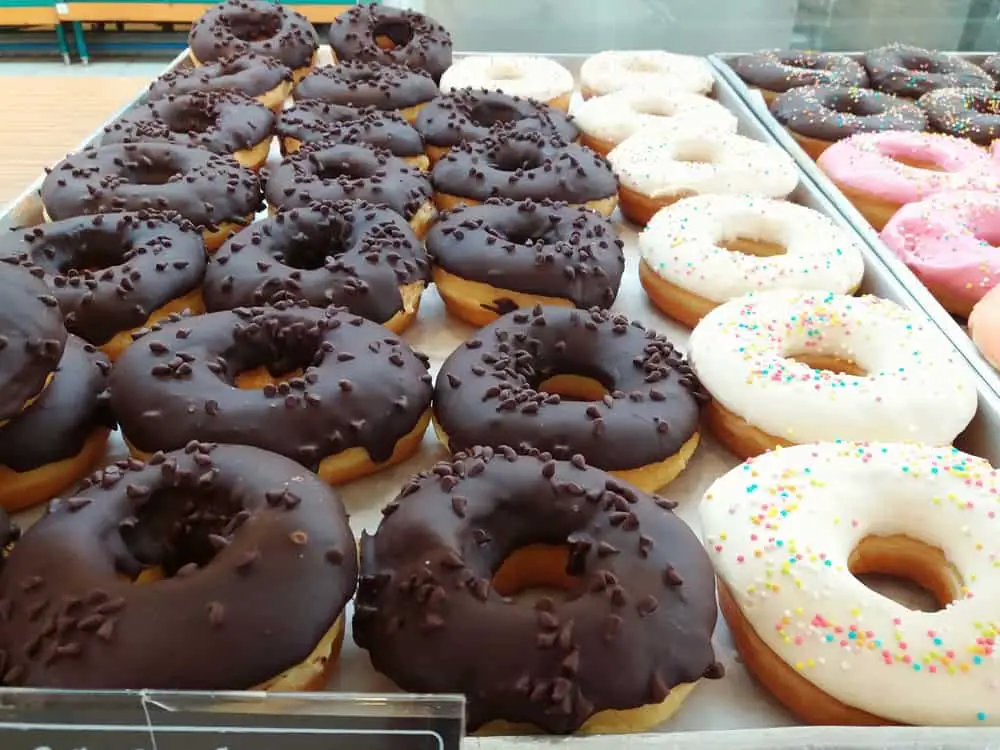New Orleans is a city known for its rich cultural, social, and racial diversity. Its history is peppered with both positive and negative milestones, so as we seek the best donuts in New Orleans, we’re going to dig into that backdrop. In this piece, we’ll touch on a few of the key elements that built this city. We’ll also tell you where to go for a satisfying doughnut treat.
Best Donuts in New Orleans
1. Café Beignet
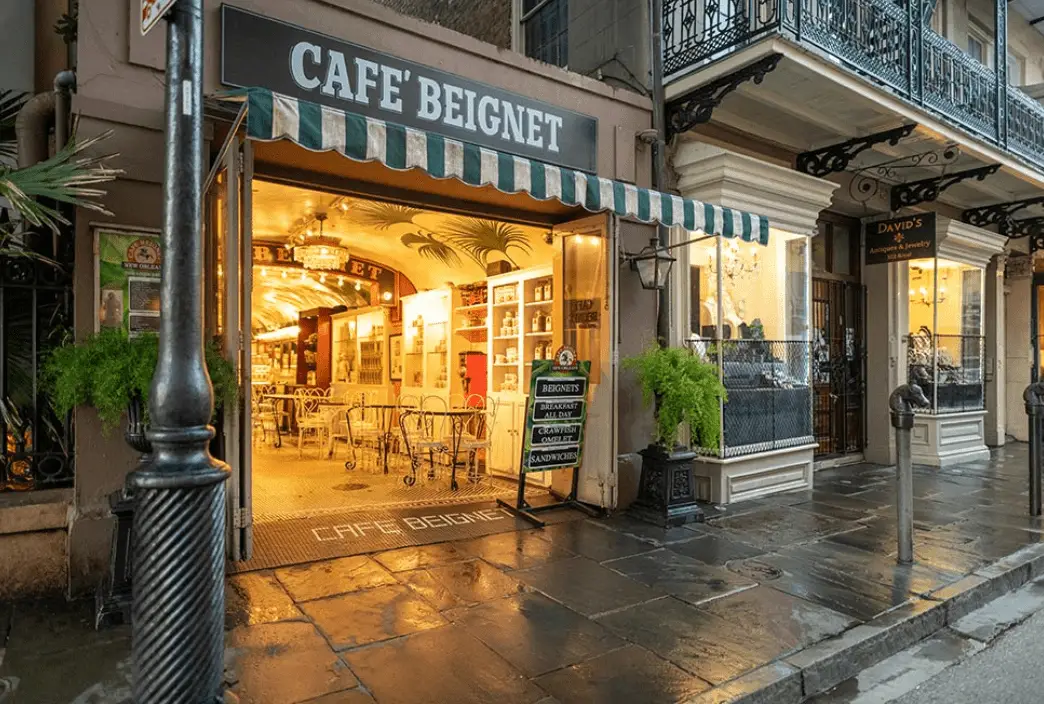
If you speak French, you might wonder why New Orleans is pronounced as or-leens instead of or-le-yoh. The original Orléans is a French waterfront city on the banks of River Loire. It might be why the French picked a territory along the Mississippi river and named it La Nouvelle Orléans, which translates as the New Orleans. It also explains the Creole heritage.
- Name: Café Beignet
- Address: 334 Royal Street, New Orleans
- Website: https://www.cafebeignet.com/
- Phone: (504) 500-4370
- Hours: 7 am to 5 pm daily
Some people see the term creole as a controversial one, but it does hint at French roots. And beignets – a popular square doughnut in New Orleans – are a type of French pastry. You can order beignets (pronounced ben-yays) and other goodies at Café Beignet. They have four New Orleans outlets, so be sure to double-check the opening hours at your nearest branch.
2. District Donuts
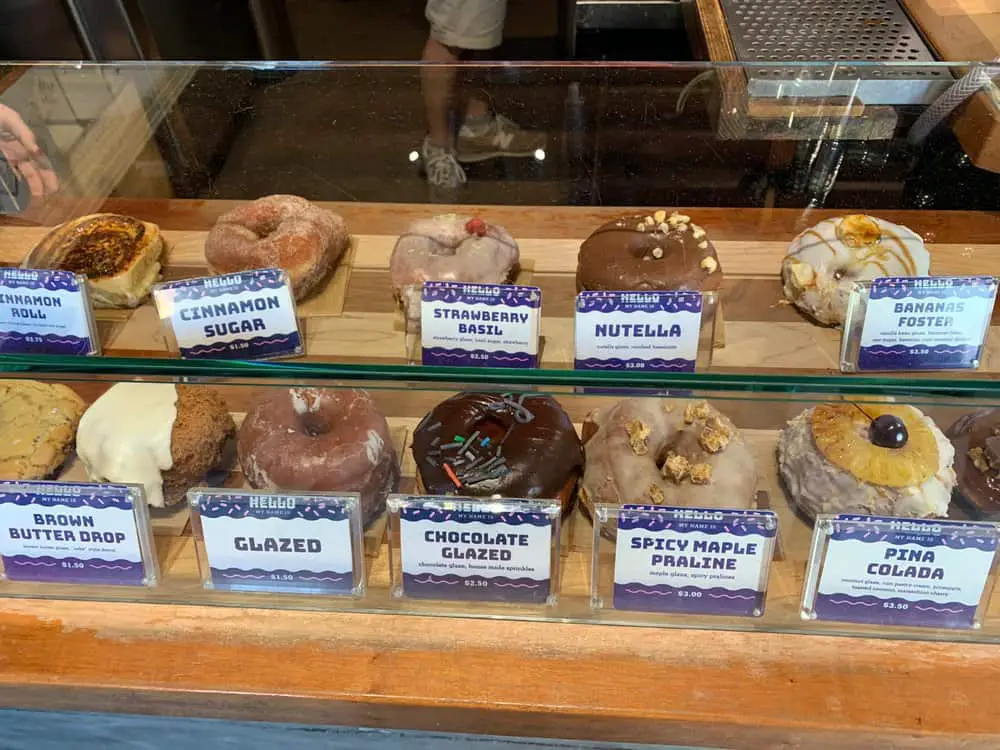
Creole can mean different things, depending on where and how it’s used. In Spanish America and the West Indies, a Creole is someone with Caucasian ancestry – mostly from France or Spain. Among today’s New Orleans residents, both Creoles and Cajuns are said to descend from European settlers. Creoles identify as black or mixed while Cajuns are seen as white.
- Name: District Donuts
- Address: 5637 Magazine St., New Orleans, LA 70115
- Website: https://www.districtdonuts.com
- Phone: (504) 313-1316
- Hours: 7 am to 2 pm daily
The city of New Orleans is largely populated by Creoles while Cajuns live further south in the countryside. But culture and politics aside, lots of New Orleans residents love beignets. At District Donuts, you can try classics like cinnamon sugar donuts or chocolate glazed donuts, but you can also order from their rotating menu or try their gluten-free drops and cookies.
3. Gracious Bakery + Café
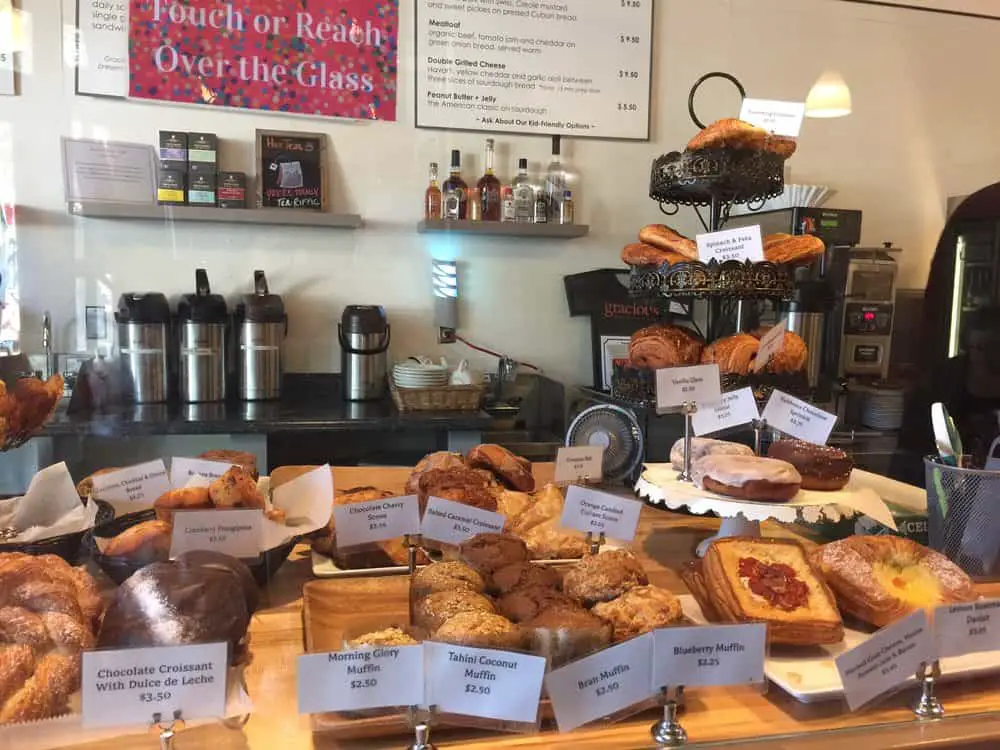
New Orleans is sometimes described as the most unique city in America, largely due to its diverse cultural influences. The city is known for its Creole cuisine, its vibrant music scene, its rich film industry, and its Mardi Gras festivities. This port city is a commercial hub for the entire region and is sometimes referred to as Hollywood South. Tons of movies are shot here.
- Name: Gracious Bakery + Café
- Address: 2854 St. Charles Ave | New Orleans, LA 70115
- Website: https://www.graciousbakery.com/
- Phone: (504) 301-9949
- Hours: 7 am to 3 pm daily
Speaking of festivals, a popular Mardi Gras base is the Garden Street branch of Gracious Bakery + Café. The eatery belongs to Megan and Jay Foreman, and they currently have three locations in New Orleans. They serve breakfast and lunch every day, but you can pre-order their cakes and pastries 48 hours in advance. They also offer wholesale orders and catering.
4. Buttermilk Drop Bakery
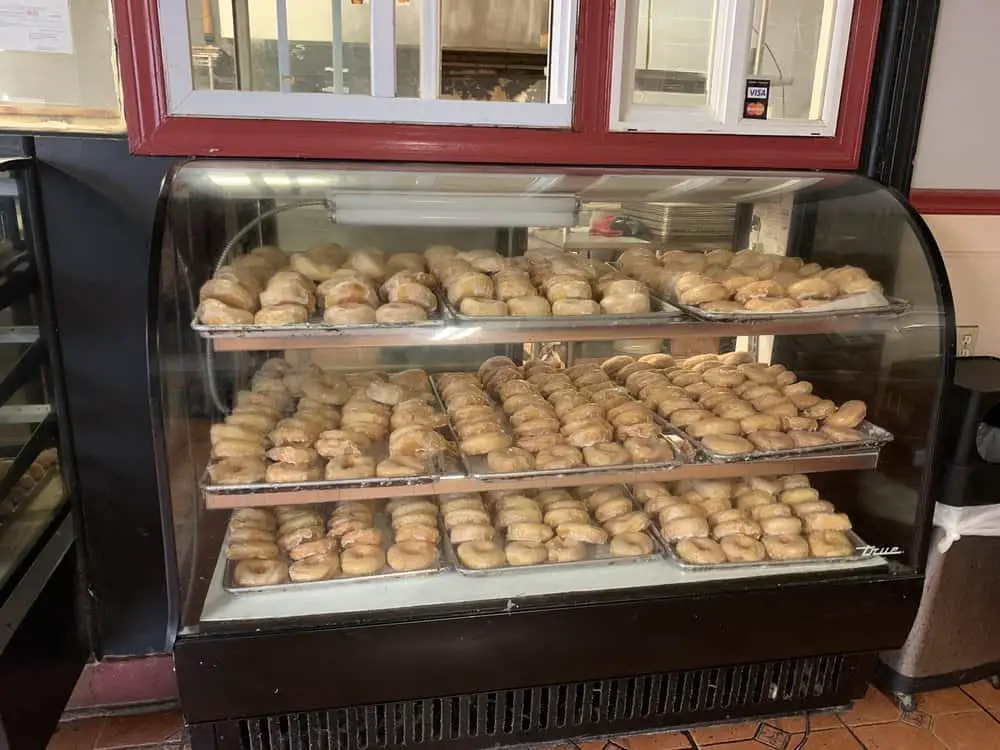
You might wonder about the French roots of New Orleans. In 1718, the French colonized New Orleans, selecting it as the capital of French Louisiana. By 1803, the city was transferred to US control via the infamous Louisiana Purchase. But while this port city offers immense profit, its location leaves it susceptible to floods and hurricanes like the devastating Katrina.
- Name: Buttermilk Drop Bakery
- Address: 1781 N. Dorgenois St. New Orleans, LA
- Website: http://www.buttermilkdrop.com/
- Phone: (504)252-4538
- Hours: Mon to Sat – 6 am to 7 pm; Sun – 6 am to 3 pm
No matter how rough things are outside, a doughnut offers unmatched comfort. And in New Orleans, doughnut holes are better known as donut drops – or just drops. That’s where the Buttermilk Drop Bakery got its name. They don’t just sell the holes though. Order their wide variety of donuts, meats, and southern delights like shrimp served with rice, grits, or hash.
5. Café du Monde
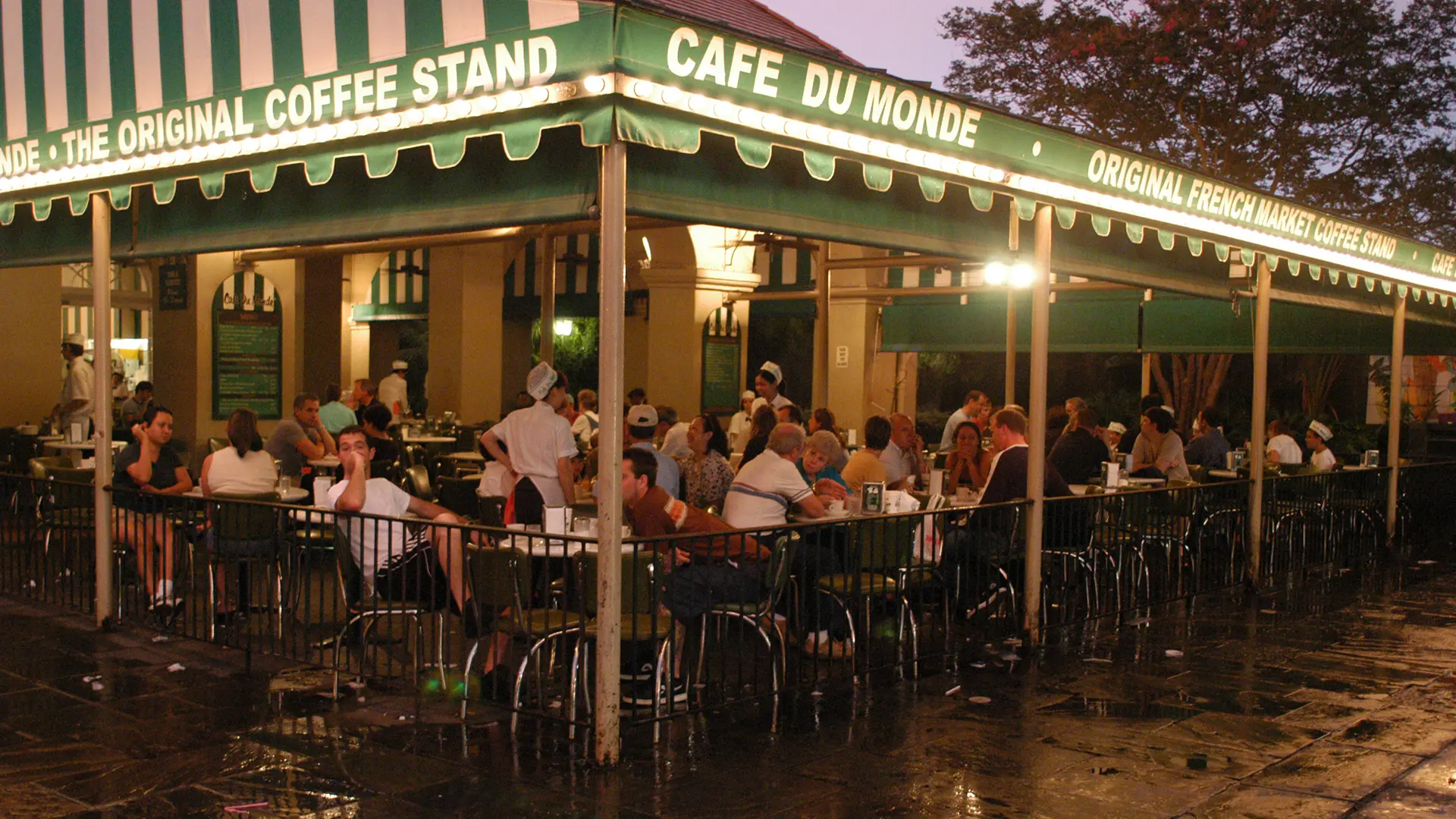
According to the history books, the US bought French Louisiana for $15M. But curiously, the French had previously given control to Spain through the 1763 Treaty of Paris after the Seven Years’ War. The Spaniards renamed the city Nueva Orleans, and since both names translate as New Orleans, the name stuck. Local nicknames include Crescent City and The Big Easy.
- Name: Café du Monde
- Address: 800 Decatur Street New Orleans, LA 70116
- Website: https://shop.cafedumonde.com
- Phone: (504) 587-0833
- Hours: 7.30 am to 11 pm daily
You can also hear New Orleans described as The City that Care Forgot because of the laid-back, easy-going character of its citizens. But if Nueva Orleans was run by Spain, why did America pay the French? France briefly took control in 1803, and that’s when negotiations for the handover happened. The city was a military supplier during the Revolutionary War.
6. Daddy’s Donuts
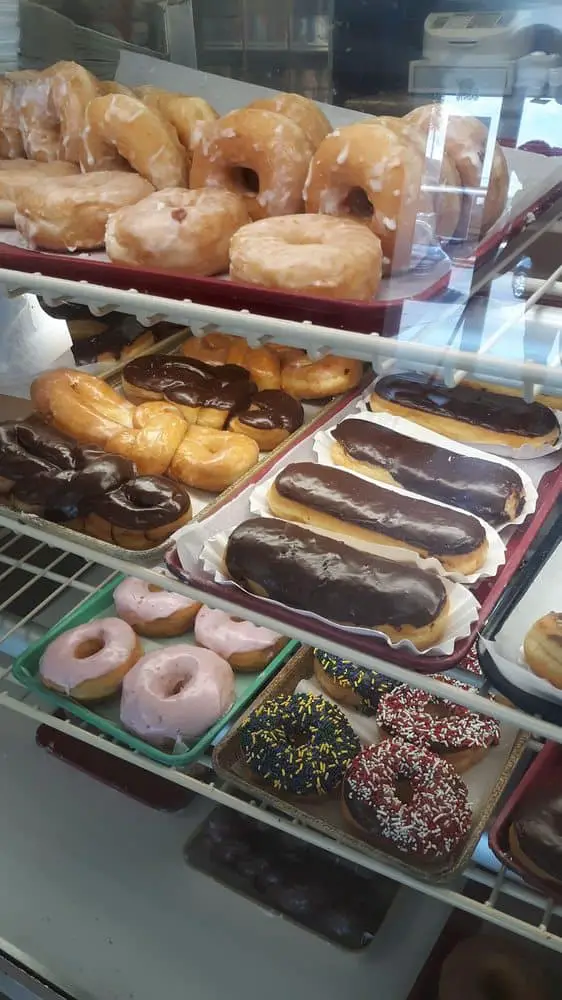
Initially, the land we now call New Orleans belonged to the Chitimacha, a Native American tribe. During the 1730s, attacks on tribes like the Natchez led to the Chickasaw Wars that wiped out and dispersed these tribes. But throughout the colonial years, the area attracted settlers from France and Spain. Around the 1760s, a wave of Filipino immigrants swept in.
- Name: Daddy’s Donuts
- Address: 2051 Caton St New Orleans, LA, US 70122
- Website: https://www.facebook.com/DaddysDonut/
- Phone: +1 504-283-3388
- Hours: 6 am to 11 am daily
Aside from Native Americans and Europeans, New Orleans gained a strong black population because starting in the 1710s, large shipments of African slaves were bought to provide labor and maintain the region’s economy. So the state developed a series of laws called the Code Noire. These factors contribute to the mingled cultural and racial heritage of this city.
7. St. Coffee on St. Claude
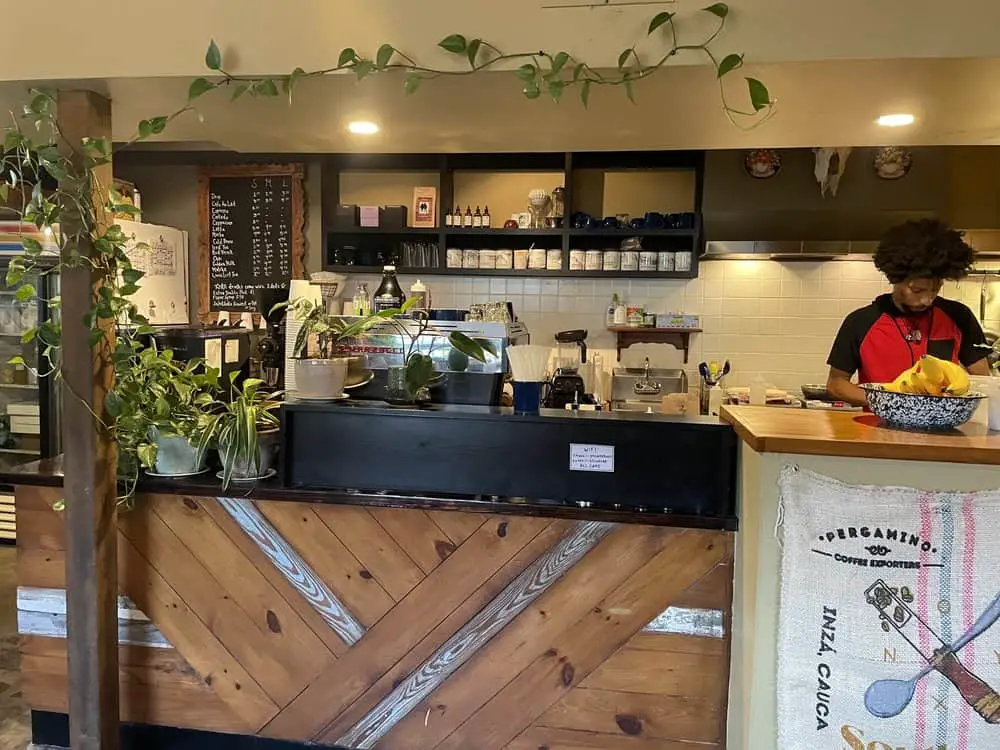
Today, we associate New Orleans with traditional religions and practices that we vaguely call voodoo. It’s an amalgamation of Afro-Creole beliefs and rituals that mingled the African faith of slaves with their newly acquired Catholicism, a result of Code Noire. This 1720s legislation required slaves to be baptized, become Catholic, and marry in church, but they had no rights.
- Name: St. Coffee on St. Claude
- Address: 2718 St Claude Ave New Orleans, LA, US 70117
- Website: https://www.instagram.com/stcoffee/
- Phone: (504) 872-9798
- Hours: 7 am to 5 pm daily
In the 1800s, after the Louisiana Purchase established New Orleans as a valid part of the US, newer immigrants from Germany, Poland, Italy, and Ireland flooded in. This mixing pot nurtured New Orleans’ culinary and cultural fame. Sugar and cotton were huge industries powered by slave labor. French nuns including the Ursuline Sisters established education.
8. The Donut Bakery
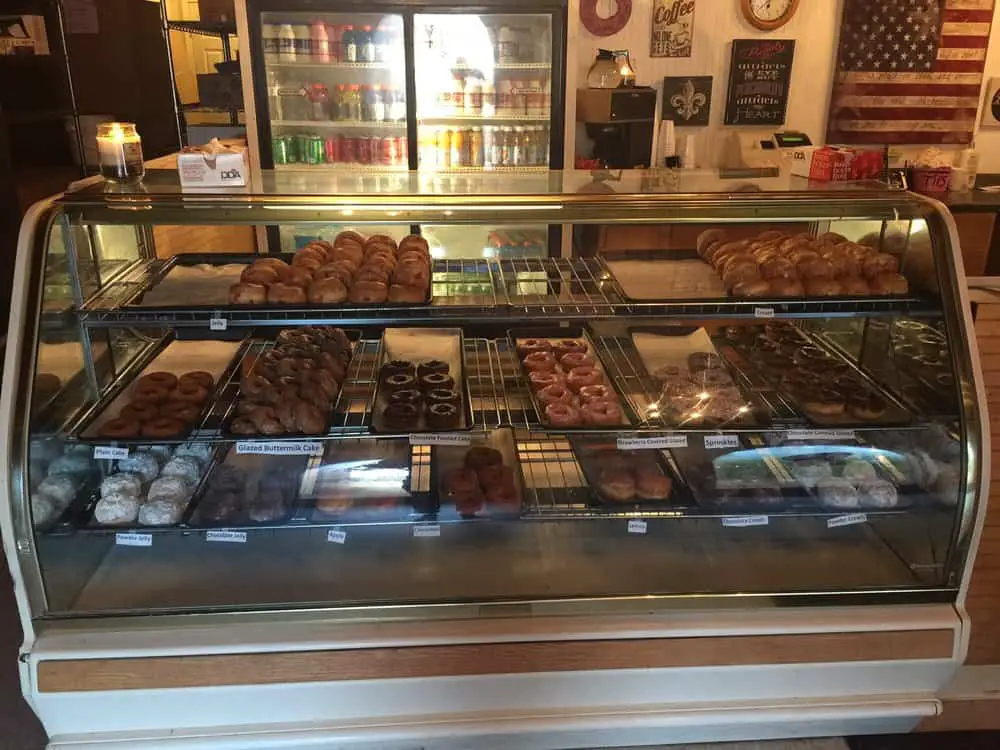
Lots of New Orleans residents can trace their ancestry to Haiti. From around 1791 to 1810, tons of Haitian refugees came over – both Caucasians and freed slaves who were mostly ‘colored’ or mixed race. Soon, the population of New Orleans was about 60% black. Some were slaves, but others were free middle-class residents with property and business interests.
- Name: The Donut Bakery
- Address: 6701 Tara Ln New Orleans, LA, US 70127
- Website: https://www.facebook.com/neworleansdonutbakery/
- Phone: 504-240-4923
- Hours: Mon to Fri – 6 am to 11 pm; Sat to Sun – 6 am to noon
This seeming contradiction meant New Orleans had the largest slave market in the US, with the bulk of Africans entering America via New Orleans. At one time, slavery (and its affiliated industries) accounted for 15% of the region’s economy. But the city also had a thriving black populace. New Orleans was the nation’s 3rd largest economy after New York and Baltimore.
9. Mr. B’s Bakery
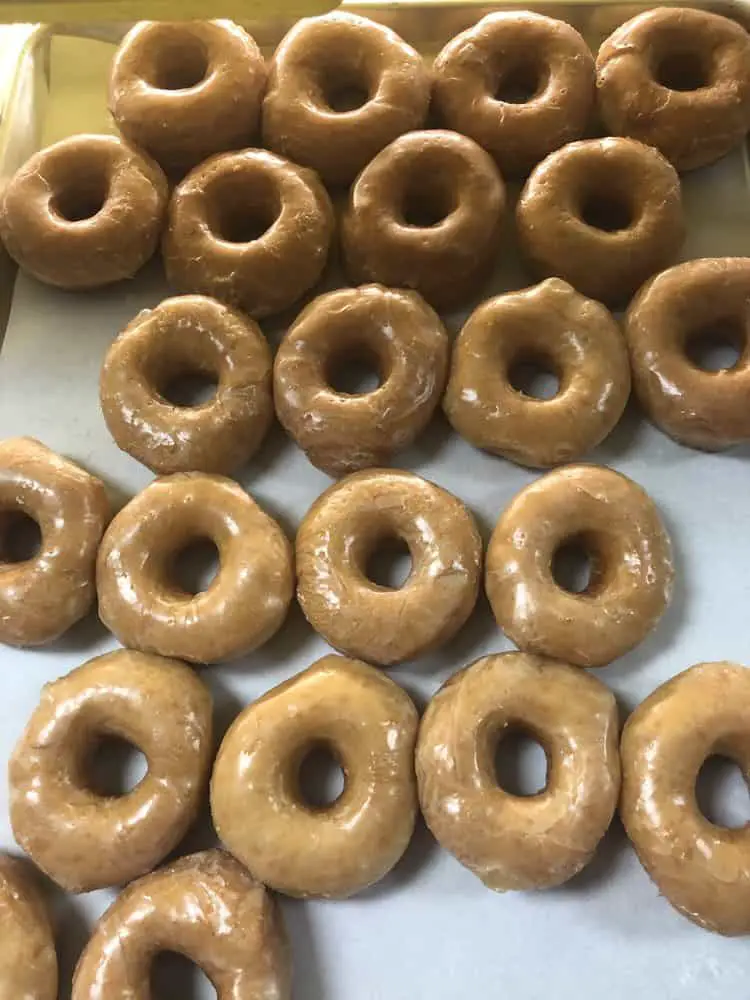
In the 1850s, leaders in New Orleans passed several manumission laws that – on paper – ended slavery. The wave of English-speaking settlers worked to reduce the Francophone influence since many locals – both whites and creoles – spoke French. General Benjamin ‘Spoons’ Butler aka Beast formally abolished French education in schools during the 1860s.
- Name: Mr. B’s Bakery
- Address: 4801 General Meyer Ave, New Orleans
- Website: https://www.restaurantji.com/la/new-orleans/mr-bs-bakery-/
- Phone: (504) 398-0950
- Hours: 6 am to 5 pm daily
While English has been the official language in New Orleans for decades, the French influence remains. And at Mr. B’s Bakery, formerly known as Honey Whip Donuts, you can get the Frenchest of glazed beignets. This mom-and-pop shop offers quick, tasty delicacies and a friendly atmosphere. Order a hot, toasty doughnut and have it fried up in minutes!
10. City Donuts & Café
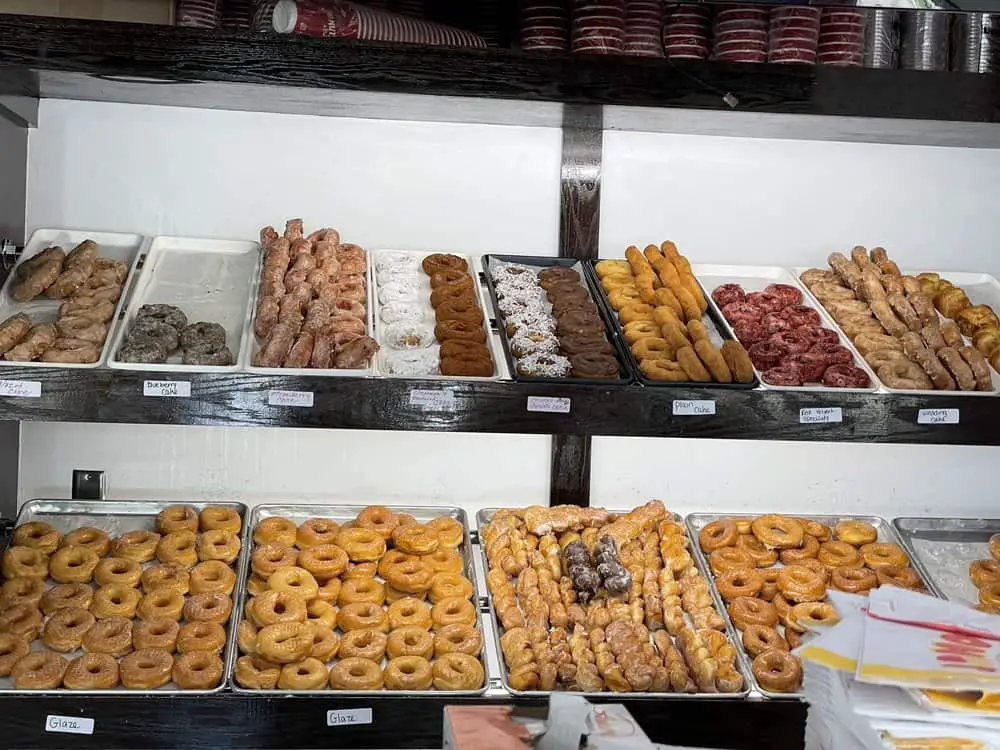
As we’ve learned, New Orleans had a massive swathe of educated colored people. These included former slaves and freedmen from the Caribbean. But Jim Crow laws reversed their progress, segregated their schools, and erased their rights. The railway also diverted port interests and many black people left. But by the 1960s, New Orleans was a civil rights hub.
- Name: City Donuts & Café
- Address: 3301 South Claiborne Ave, New Orleans
- Website: https://www.facebook.com/Citydonutscafe2019
- Phone: +1 504-372-5811
- Hours: 3 am to 11 pm daily
If you look for New Orleans eateries online, you’ll see them described as NOLA, an acronym that means New Orleans, Louisiana. City Donuts is a top spot for doughnuts and other local specialties like gumbo. They offered delivery and take-out during the pandemic and are now offering dine-in service as well. They revamped their menu in April so go try something new.
11. Hurts Donut Company
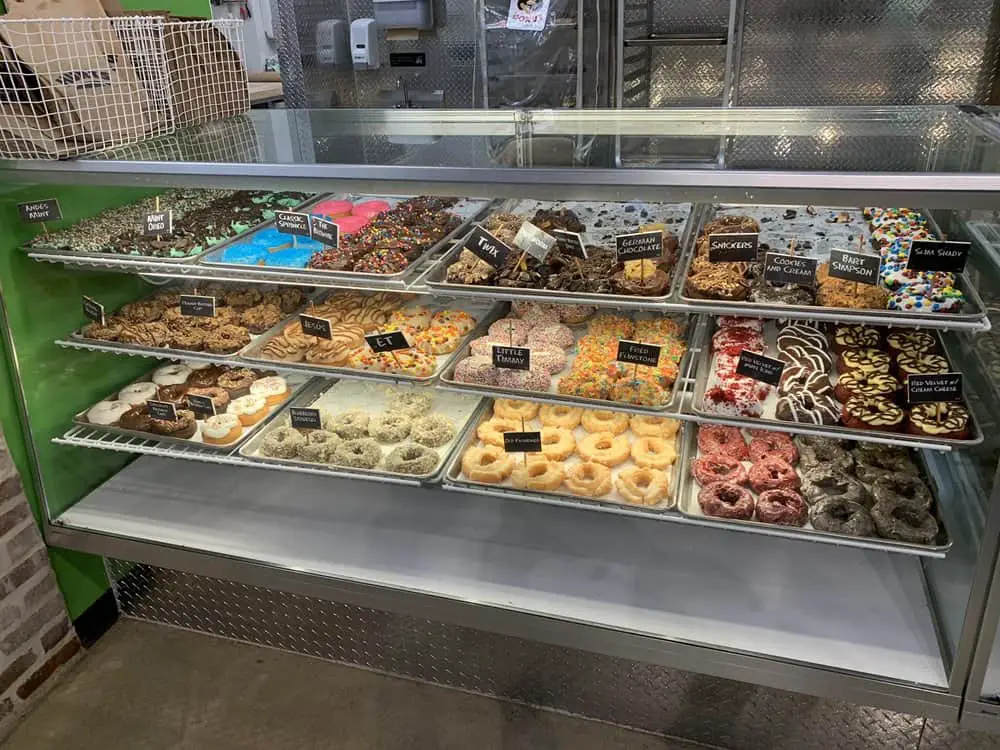
In modern times, New Orleans relies heavily on tourism, but the lasting effect of Jim Crow and racial disparities means there’s still a demographic gap in income and education. 2005’s Hurricane Katrina killed close to 2,000 people. The resulting damage and exodus left the city’s population at around 50%. The city is gradually recovering. It now has 80% residency.
- Name: Hurts Donuts
- Address: 501 Loyola 70113, New Orleans, Louisiana
- Website: https://www.wannahurts.com/
- Phone: 504-841-9904
- Hours: All day and night
As the city re-establishes its glory, franchises are popping up. And Hurts Donuts is fast becoming a local fave. It has over 20 outlets nationwide, and the Louisiana branch is in Loyola. The shop is open 24/7 and its playful beginnings are a huge part of the culture – they learned to make donuts on YouTube, bought their gear off Craigslist, and love social media.
12. Blue Dot Donuts
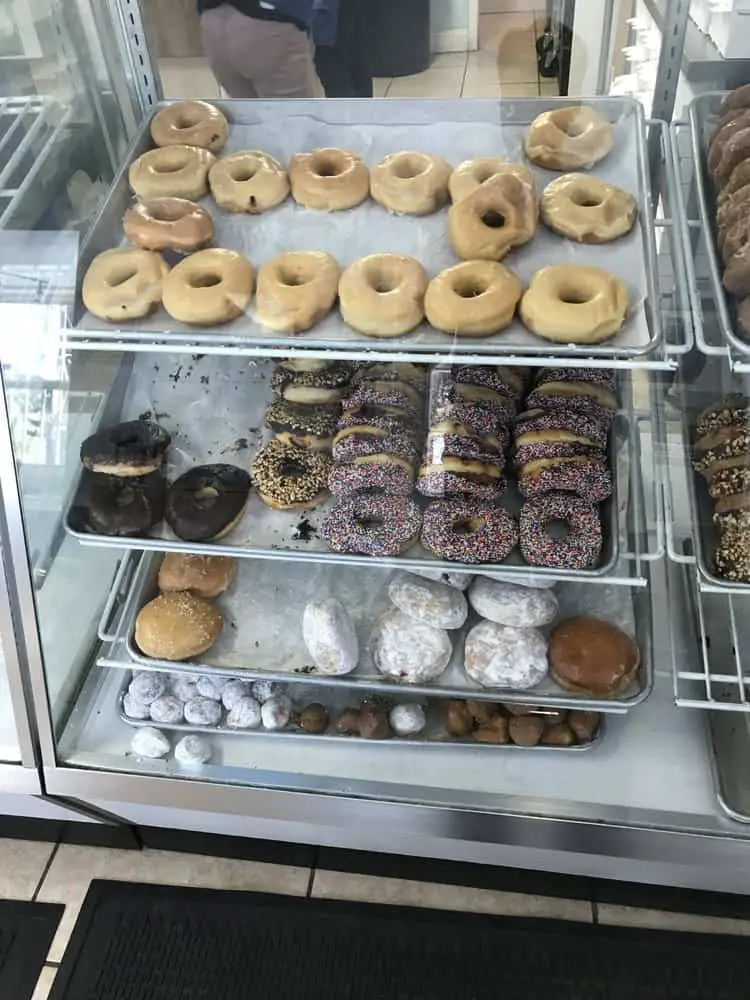
Throughout the centuries, New Orleans recovered swamps and marshland for development by pumping out excess water. This means half the city is at sea level or below, which means the city still faces the risk of floods and hurricanes. But in keeping with the spirit of the city, events like Mardi Gras and Jazz Fest continued, even amid Hurricane Katrina’s devastation.
- Name: Blue Dot Donuts
- Address: 4301 Canal St, New Orleans, LA 70119
- Website: https://www.instagram.com/bluedotdonuts/
- Phone: (504) 218-4866
- Hours: Wednesday to Sunday – 6 am to noon (or sell-out)
Seeing as the city was holding events in the middle of a natural disaster, the local cops – and their beloved donuts – were probably involved. And in 2011, three police officers opened Blue Dot Donuts. They’ve since sold it to a baker (in 2017) but it still serves the treats that law enforcement – and everyone else – takes joy and comfort in, and they often sell out!
13. Pawpaw’s Donuts @ Hey Coffee
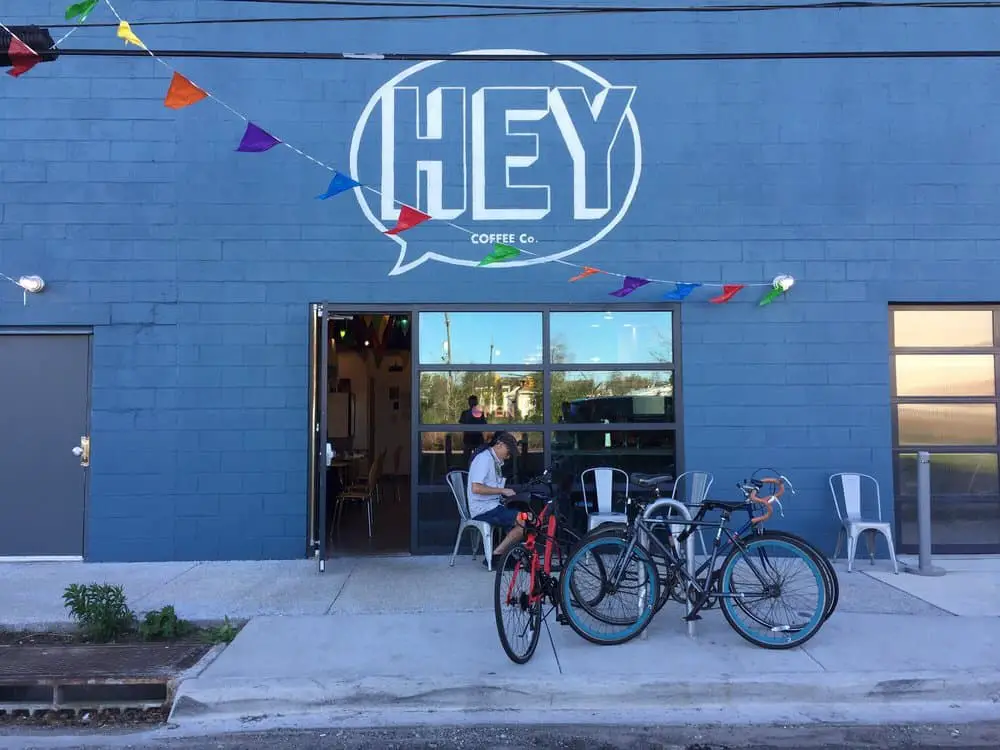
New Orleans is commonly accepted as the home of jazz, with unmatched greats like Louis Armstrong being born and raised there. It was the only city that allowed slaves to play their native music in public, so jazz developed as skilled artists mingled traditional rhythms with western musical instruments. The music had elements of its vastly mixed cultural influences.
- Name: Pawpaw’s Donuts @ Hey Coffee
- Address: 2606 St Louis St, New Orleans, LA, 70119
- Website: https://www.pawpawsdonuts.com
- Phone: Pre-order online
- Hours: Fridays 7 am to 11 pm (or sell-out)
Beyond beignets, a popular dish in Louisiana is the po’boy sandwich. It’s made on crispy French bread with a soft meaty middle, and was initially served to picketing laborers because ‘those po’boys are starving!’ Although the famous Freret Po’boys and Donuts closed in 2017, you can still order a po’boy sandwich at modern NOLA delis and doughnut shops.
What’s your favorite doughnut spot in New Orleans? Tell us why you love it and where it is!
